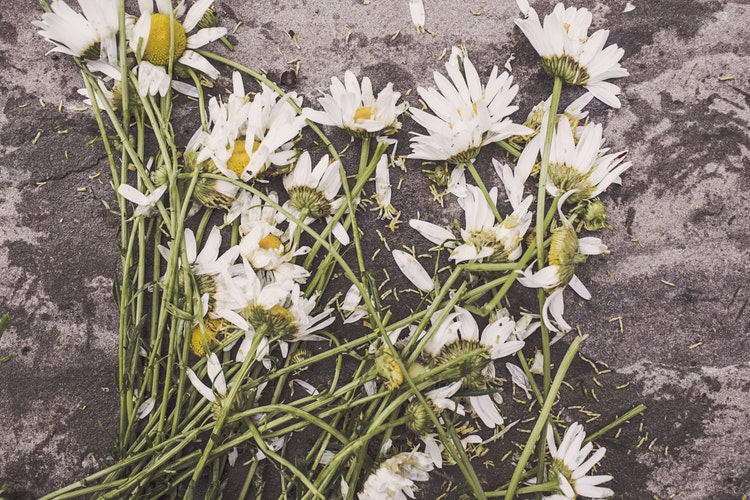Writing about grief can be a little dangerous. What one person feels isn’t necessarily how someone else will feel. Nor is there one way to fix it all for everyone. But let me start by saying that if or when do feel grief, whatever you are feeling, it’s entirely and absolutely normal, even if it doesn’t feel like it.
Grief isn’t always about coping with death. Grief is a loss, and it comes in many forms: losing a job, leaving university, or perhaps leaving home for the first time. And there are no hard and fast rules for how you’re ‘supposed’ to cope. What works for one person may not work for someone else; of course, there some unhealthy ways of managing your grief.
Losing My Parents at a Young Age
My mum died when I was 15. I don’t know much about the details because my dad thought I was too young to have to deal with that as well as losing her, but I didn’t cope well. It was an extremely confusing time and I’ve repressed a lot of it. It was tough.
My dad died when I was 21. This time around, things were very different. He was diagnosed with cancer of the stomach and for most of those two years, I was his main carer. Thankfully, this involved helping with the cooking, the laundry, tying shoelaces, and pushing him in his wheelchair. I realise that in that respect, I got off lightly. When, after the surgery and at least one round of chemo/radiotherapy, things weren’t going to get better for him, we planned his funeral together – choosing music, and readings, etc. to make sure it was exactly what he wanted. I think, on reflection, this helped deal with some of the loss before it even happened. It still hurt and I still felt it, but it was very different this time.
Change After Loss
Change is, for some people – myself included – very stressful and I don’t cope well, even with the tiniest of changes. Grief is the experience of loss or of something changing, and how we deal with it can have an effect on how well we cope with it. The key is not to give up.
An important thing to remember, at all times, at whatever stage you’re at in your grief, it is OK to feel. You’re allowed to feel emotions: loss, sadness, fear, anxiety, and everything else. In all of this, it’s important to note that while you can feel these things, they are not all of you, and you are not defined by them.
Celebrate the good times, too. If you have a good day, enjoy it. Grief isn’t one big cloud of sadness that comes over you at the start and disappears when you’re ready to move on. Celebrate the little things; the things that nobody else would notice but that mean a lot to you. As for me, I have done the 100 Happy Days challenge twice and found it helpful to look back on during harder times. And it’s so easy to do.
It doesn’t have to be happiness that screams it from the rooftops all singing and all dancing, it can be something as simple as enjoying a nice, hot cup of tea; treating yourself to a cupcake while doing the weekly shop; a pretty flower you found on a walk; getting into your pyjamas – anything at all that even remotely makes the day nice. All you need to take part is an account on Instagram, Facebook, or Twitter, a camera (or your phone), and registering on their website. It’s not always easy – in fact, the last time I did it was really quite hard, but it did challenge my perspective.
When your head is so full of sadness and the heaviness of loss weighs on you, it can be difficult to see those small things that brighten your day, even just for the briefest moment. Some days, I found myself at 8 o’clock in the evening and I hadn’t taken a picture of something and I quickly had to find something good or do something just for me.
That’s when it dawned on me that sometimes the good needs to come from us – that we should do something nice for ourselves, and to be nice to ourselves. If you made it through a tough day – enjoy a cup of hot chocolate and watch your favourite film. And it really doesn’t matter if you do the same thing every now and then because it’s all for you and you deserve it.
If you aren’t coping and think you might need some help, please do speak to a professional or someone, if you are able to. The ‘advice’ that circulates around feelings of grief and depression, etc. often centres on the person going through it to reach out and get help. If you feel you can, do. If you think someone you know and care about might be struggling, reach out them: invite them for a coffee, take them for a day out to the beach – anything. Don’t force them to talk about how they’re feeling; they’ll tell you if or when they can. Just be there and make some memories, enjoy their company, and try to make their day that little bit better.
You are important, you are never alone, and you are allowed to feel what you’re feeling – and yes, it is absolutely normal to feel this way.
-Bloom From The Darkness
Author: Toni Spencer






